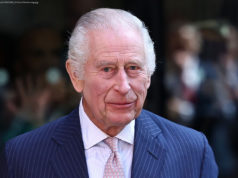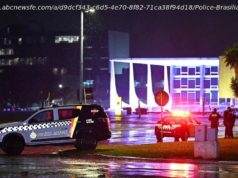Western Ukraine has been a safe haven for Ukrainian refugees, as well as businessmen, journalists and diplomats. But attacks in two cities pierced the sense of security in the region.
Men in camouflage, hardened by battle, sniffled as a Ukrainian Orthodox choir sang the haunting funeral mass. One man put his arm around another as tears welled in his eyes. “The glory and freedom of Ukraine has not yet perished,” said the priest during the funeral rites on Saturday for two of the four soldiers who died when the city’s military airfield was bombed before dawn on Friday. “For 30 years we were singing these words and saying we would suffer for our freedom, but we could not have imagined these words would become our reality, that we would have to send our sons to defend us against our neighbors,” Father Mykhail, the priest said. The Russian invasion of Ukraine is now in its third week. With the four deaths at the airfield, it arrived in Lutsk, a provincial capital only 55 miles from Poland. It was a rare attack in the West by a Russian military that has focused primarily in the South, North and around Ukraine’s capital, Kyiv. For weeks, Western Ukraine has been a safe haven for millions of Ukrainians who have fled battle zones, as well as businessmen, journalists, diplomats and others. But with bombings in Lutsk and another Western city, Ivano-Frankivsk, early Friday, violence and death pierced the sense of security that many had taken for granted. “There is no peaceful town in Ukraine any more,” said Myroslava Kozyupa,43, who stood outside on the town square listening as speakers broadcast the funeral taking place in the Church of the Holy Trinity in front of her. She acknowledged that for now they face less peril than other cities like Kharkiv, which has been under assault for two weeks, and Mariupol, the country’s most pressing humanitarian emergency, saying “we are pretty OK.’’ But she was distressed that Matvii, a blue-eyed, seven-month-old baby being carried by a woman next to her, “already knows what sirens are and already knows they mean we have to go to a bomb shelter.” Ukraine’s vast western region has stirred more concern in recent days following intermittent reports that Belarus, only 90 miles to the north, might begin to commit forces to the war. That worried Lutsk residents because of Belarus’s proximity and the unpredictability of its autocratic leader, Aleksandr G. Lukashenko, an ally of Russian President Vladimir V. Putin. The region’s role as a corridor for weapons being delivered from Europe and the United States may also make it a target.






